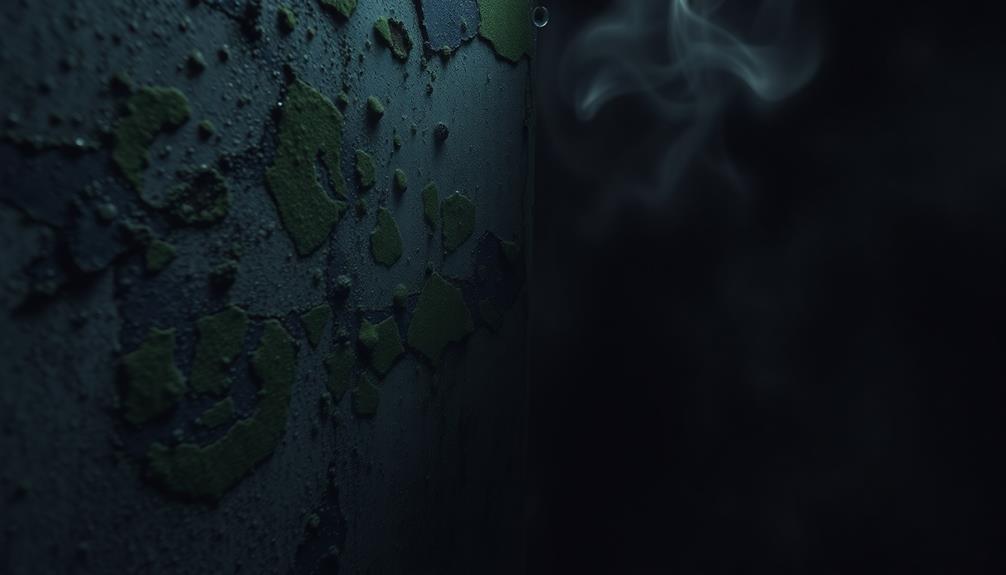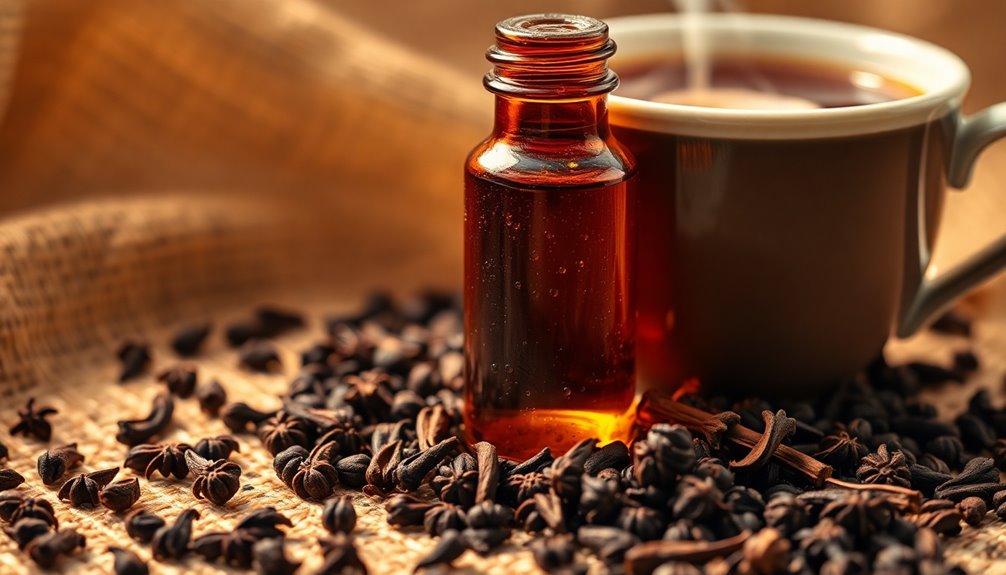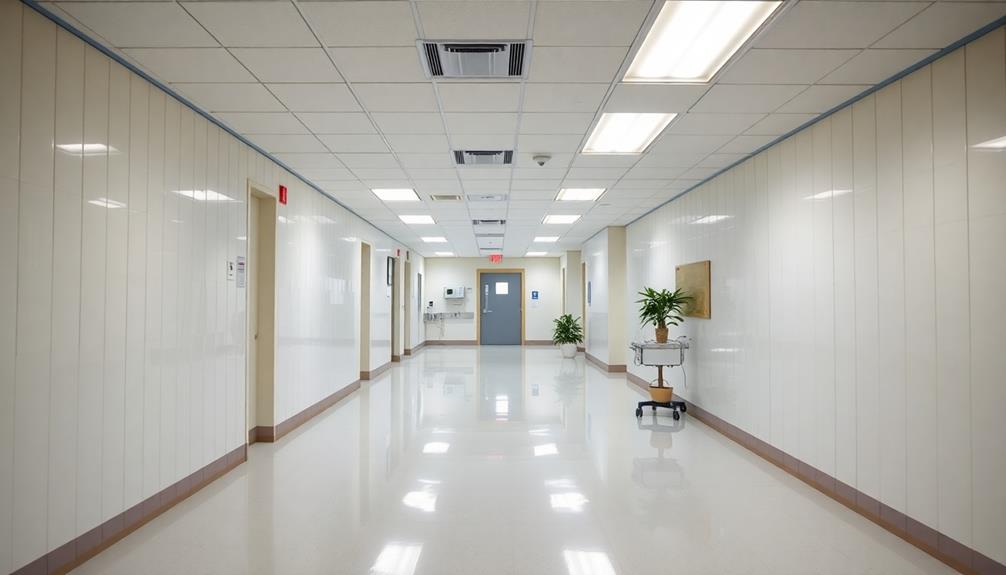Mildew smells musty and damp, kind of like wet clothes left in a dark corner. You might picture it as an earthy scent, similar to decaying leaves or moist soil. It often hangs around in humid places like bathrooms and basements, where it can grow quickly. This smell tells you there's a hidden moisture problem, so it's important to check for leaks or damp spots. If you notice that musty odor, don't ignore it! Tackling mildew not only makes your home smell better but also helps keep you healthy. There's even more to discover about mildew and its effects!
Key Takeaways
- Mildew has a musty, damp odor similar to wet clothing or decaying leaves.
- The smell is less pungent than mold, which releases stronger odors.
- It often indicates hidden moisture problems in high humidity areas.
- The odor can linger even after cleaning if the moisture source isn't addressed.
- Telltale signs of mildew include white, fluffy growths on surfaces and persistent musty smells.
Introduction

When you notice a mildew smell in your home, it often signals an underlying moisture problem that needs your attention. This musty odor can remind you of wet clothes or spoiled food, and it usually pops up in places with high humidity, like bathrooms or basements.
When you catch a whiff of that smell, it's important to act quickly! Mildew thrives on moisture, and if you don't take care of it, you might end up with more fungal growth.
Keeping your indoor environment healthy is super important. You'll want to do a quick inspection to find out where the moisture is coming from. Maybe there's a leaky pipe or a damp corner you didn't notice before.
Once you find the source, cleaning it up will help get rid of that odor. By tackling these issues, you can prevent any more mildew from creeping in.
Description of the Smell

The smell of mildew is unmistakable and often described as musty and damp, reminiscent of stale or wet clothing. When you catch a whiff of this odor, it might remind you of earthy scents like decaying leaves or moist soil. That's because mildew thrives in areas with moisture, and its smell can evoke a sense of dampness around you.
This odor is usually less pungent than mold, which can have a stronger, more offensive scent due to the microbial volatile organic compounds (MVOCs) it releases. If mildew infests a space, you might notice the smell lingering even after cleaning. This happens because the odor sticks to the materials it has invaded, especially if the source of moisture isn't fixed.
You'll often find mildew in places like bathrooms and kitchens, where dampness is common. Look out for its telltale signs, such as white, fluffy growths on surfaces.
Source and Composition
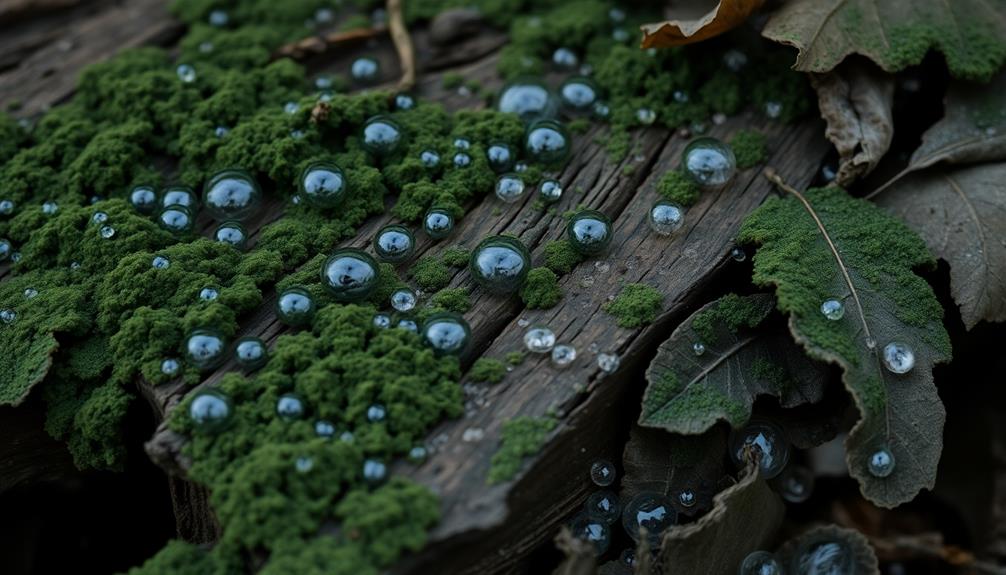
Mildew thrives in damp, humid environments, often finding a home in areas with poor ventilation. You might notice a musty odor in these spaces, which can remind you of wet socks or decaying leaves. This smell comes from tiny particles called microbial volatile organic compounds, or MVOCs, released as mildew grows.
It loves high humidity and can easily settle on organic materials like wood, paper, or fabric. When moisture levels rise, especially in damp areas like bathrooms, basements, or kitchens, mildew can spread quickly. The stronger the mildew smell, the more serious the problem may be.
It's important to pay attention to that musty odor, as it usually points to hidden moisture and potential mold growth. Leaving it unchecked can lead to health risks, which nobody wants!
To keep your home fresh and safe, make sure to improve ventilation and control moisture levels. This way, you can help prevent mildew from taking hold and enjoy a cleaner, healthier living space.
Typical Scenarios or Environments
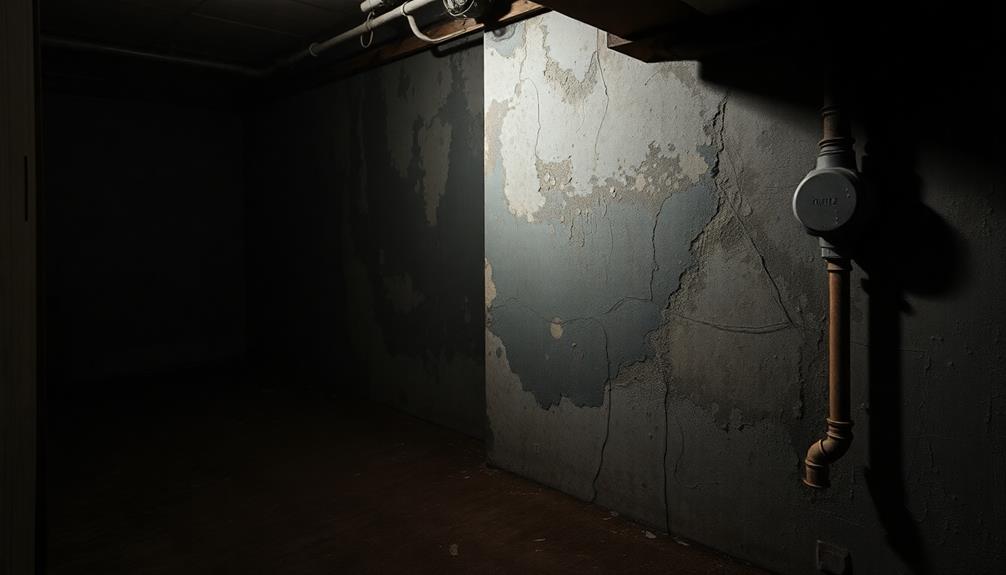
Finding mildew in your home often happens in specific scenarios or environments that favor its growth. You might notice that musty odor creeping up in places like your bathroom, kitchen, or basement.
These spots usually have high humidity, which is just perfect for mildew to thrive. When moisture builds up in poorly ventilated spaces, mildew growth can kick in fast—sometimes within just 24 to 48 hours!
If you ever get a whiff of that damp, musty smell, it's a good idea to check those areas. Persistent odors can mean the mildew is getting out of control, and you'll want to act quickly.
Regular inspections can really help! By keeping an eye on moisture levels, you can detect problems early, preventing that unpleasant smell from taking over your home.
If you find mildew, don't panic! Remediation can help clear it away and keep your space fresh and inviting.
Emotional or Cultural Associations
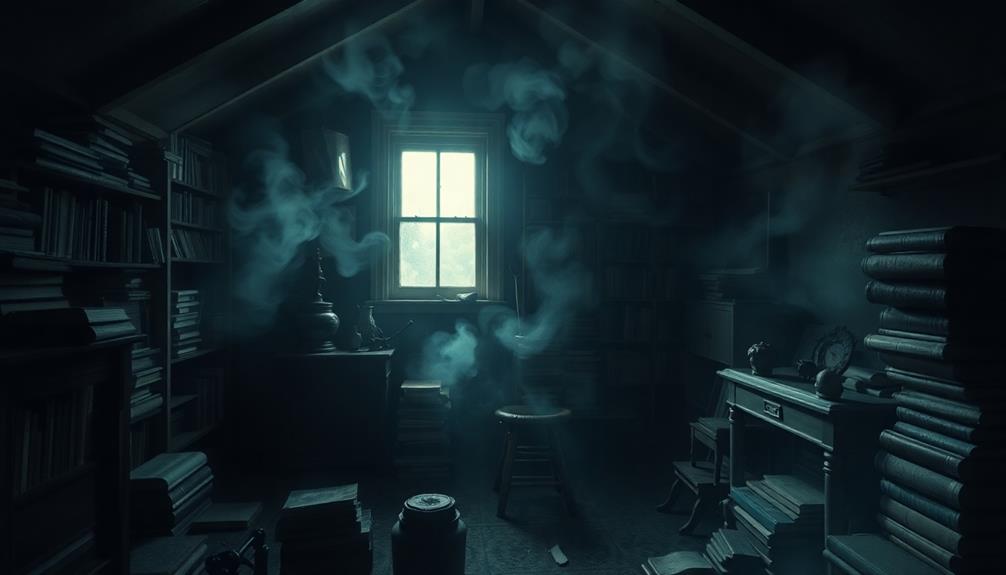
Many people associate mildew with discomfort and unease, as its musty odor often signifies dampness and neglect. When you catch a whiff of mildew, it might remind you of places that feel unclean. This smell can stir up feelings of anxiety or negative energy, making you want to escape the space.
In some cultures, mildew symbolizes decay and bad luck, creating superstitions around its presence.
However, it's interesting to note that the smell of mildew can also bring back nostalgic memories. Maybe it reminds you of an old book or a cozy basement in your childhood home. Those scents can transport you back to warm, happy moments, despite their undesirable reputation.
Mildew's scent can act as a cultural marker, showing how different people maintain their spaces based on environmental conditions. For some, it's a reminder of the importance of cleanliness.
Ultimately, the smell of mildew affects emotional well-being. While it can cause discomfort and anxiety, it also connects us to memories and cultural stories, making it a unique part of our sensory experiences.
Health or Safety Considerations
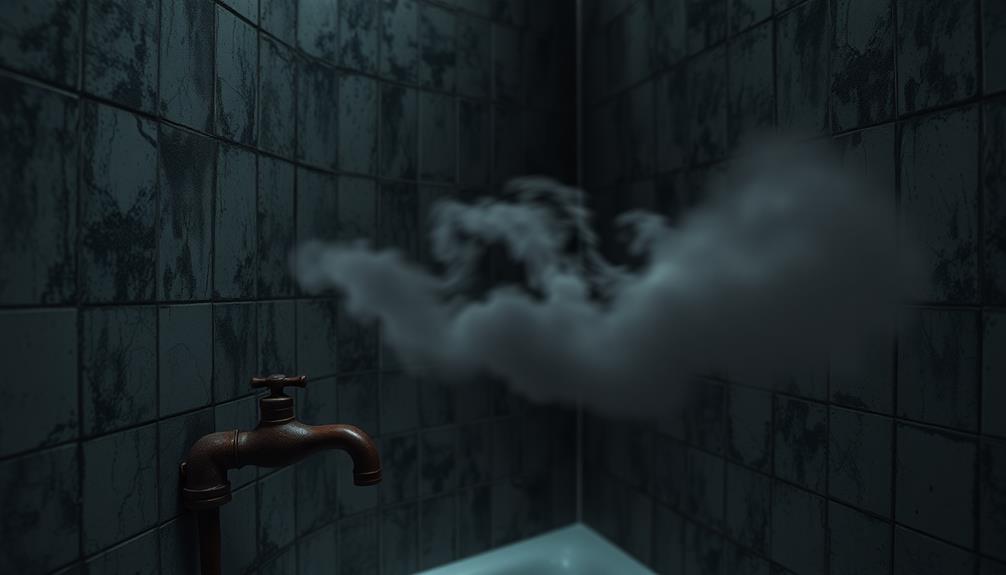
The musty odor of mildew signals more than just an unpleasant atmosphere; it can pose significant health risks. When you smell that damp, musty scent, it often means there's moisture around, which can lead to mold growth. This isn't just about a bad smell. The presence of mold can trigger allergies, respiratory issues, and even more serious health problems for sensitive individuals. Similar to bad breath smell characteristics, which can be a sign of underlying health issues or poor hygiene, the musty odor of mildew is often an indicator of deeper, hidden problems. Addressing the source of moisture as soon as possible is crucial to prevent further complications and maintain a healthy living environment.
Exposure to mildew can cause health symptoms like nasal congestion, throat irritation, sneezing, and even skin irritations, especially for those with allergies. If you have asthma or other respiratory problems, you might notice your symptoms getting worse when you breathe in that mildew smell.
That's why it's super important to deal with mildew odors right away! Long-term exposure can lead to even bigger issues, like chronic respiratory problems or severe allergic reactions.
Keeping your indoor air quality high is essential. Identifying and eliminating mildew odors is a key step in ensuring your home stays healthy and safe. If you notice that musty smell, consider checking for moisture in your home and think about remediation.
You deserve to breathe easy and enjoy a fresh, clean environment!
Final Thoughts
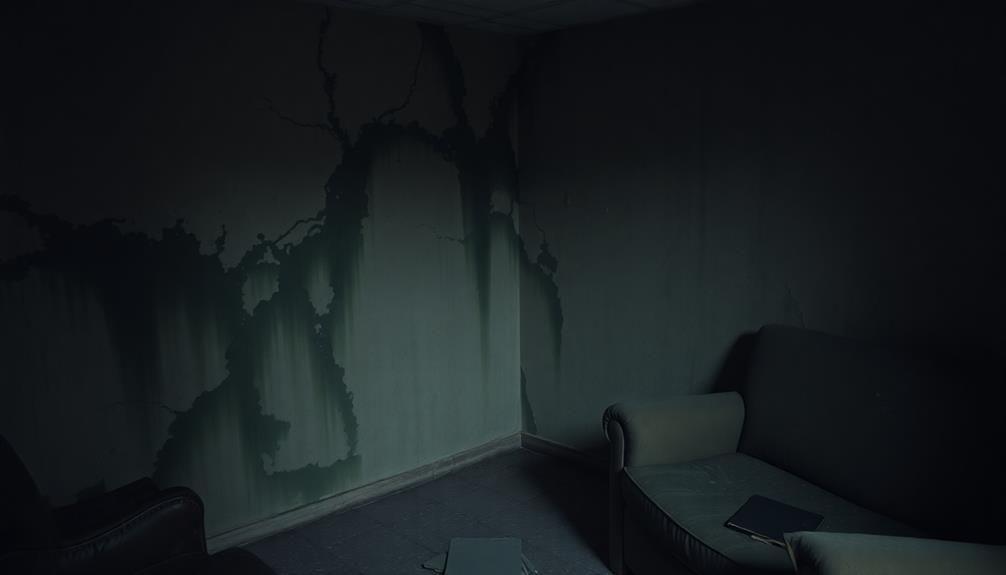
Addressing the musty smell of mildew is vital for maintaining a healthy living environment. If you catch a whiff of that earthy smell, like wet clothes or decaying leaves, it's time to take action! This musty odor often means you have moisture issues that could lead to bigger problems.
Areas with high humidity and poor ventilation, like basements and bathrooms, are prime spots for mildew to grow.
Identifying that smell early helps you avoid serious health impacts. Mildew can start growing within just 24 to 48 hours in the right conditions, so be on the lookout!
Managing your humidity level and improving ventilation are great steps for preventing growth. Open windows, use fans, or even a dehumidifier to keep your spaces fresh.
Frequently Asked Questions
How Do You Describe the Smell of Mildew?
When you encounter mildew, you'll notice a musty, damp scent, reminiscent of wet clothes or old books. It's earthy and often stronger in humid areas, hinting at moisture issues that need your attention.
Is Mildew Smell Toxic?
No, mildew smell isn't toxic itself, but it can indicate mold presence, which may pose health risks. If you notice the odor, it's best to address moisture issues to avoid potential respiratory problems.
Does Mildew Smell Like Body Odor?
You might think mildew smells like body odor, but it doesn't. Mildew's musty, earthy scent resembles damp clothing, while body odor has a sharper, more pungent aroma due to bacteria breaking down sweat.
Is Breathing in Mildew Harmful?
Yes, breathing in mildew can be harmful. You might experience respiratory issues, allergies, or even chronic health conditions if you're exposed for too long, especially in poorly ventilated areas. It's best to avoid it.
